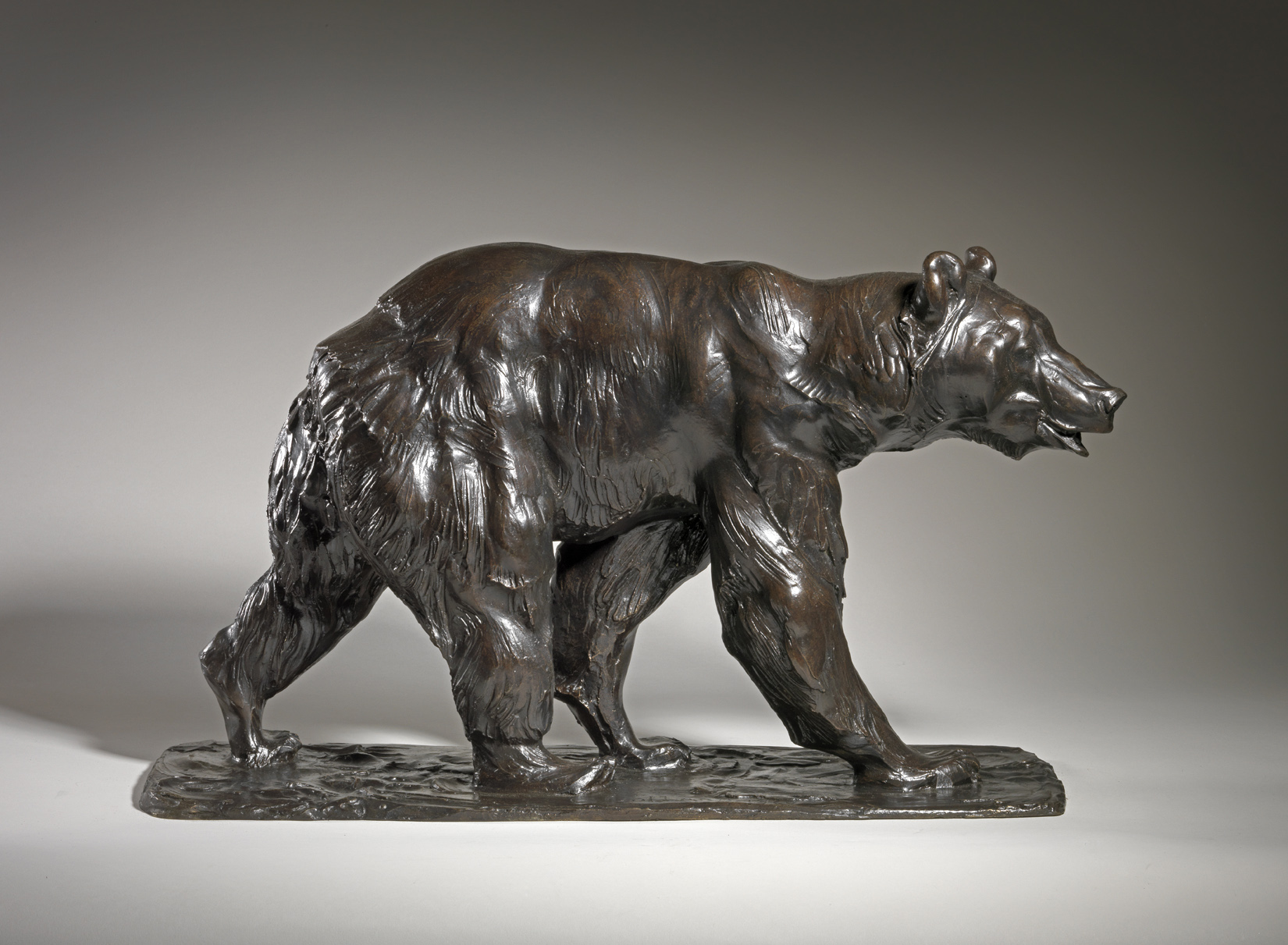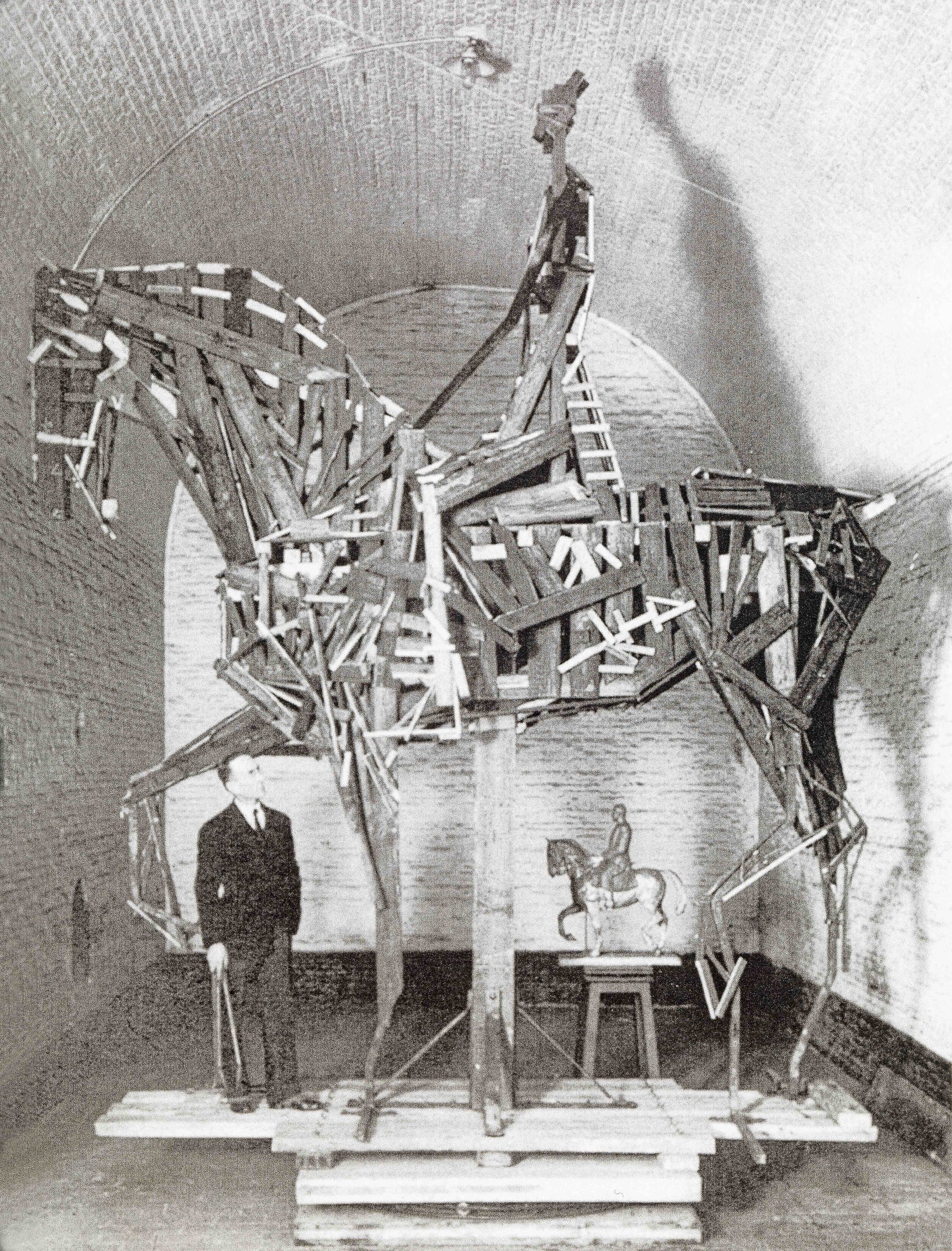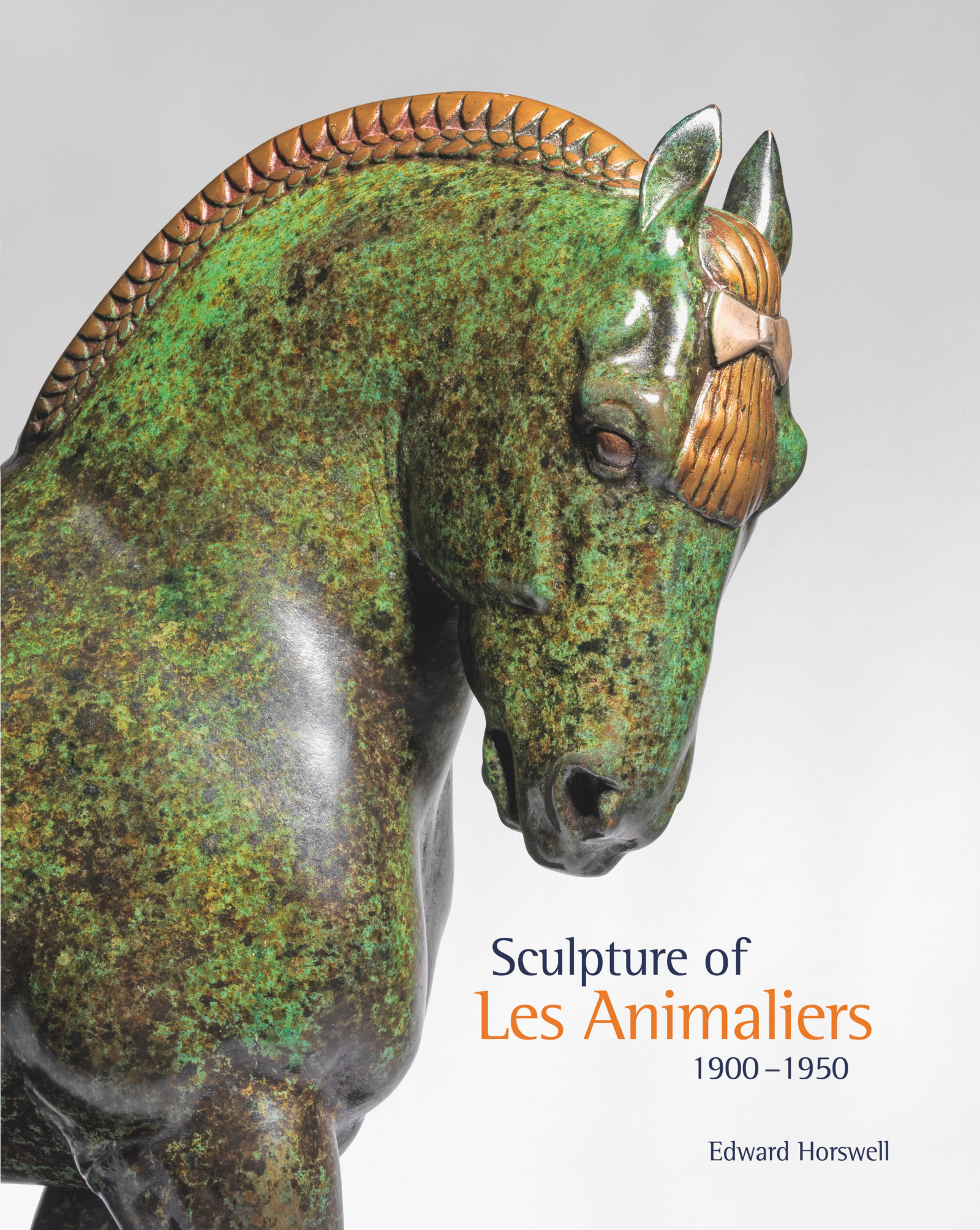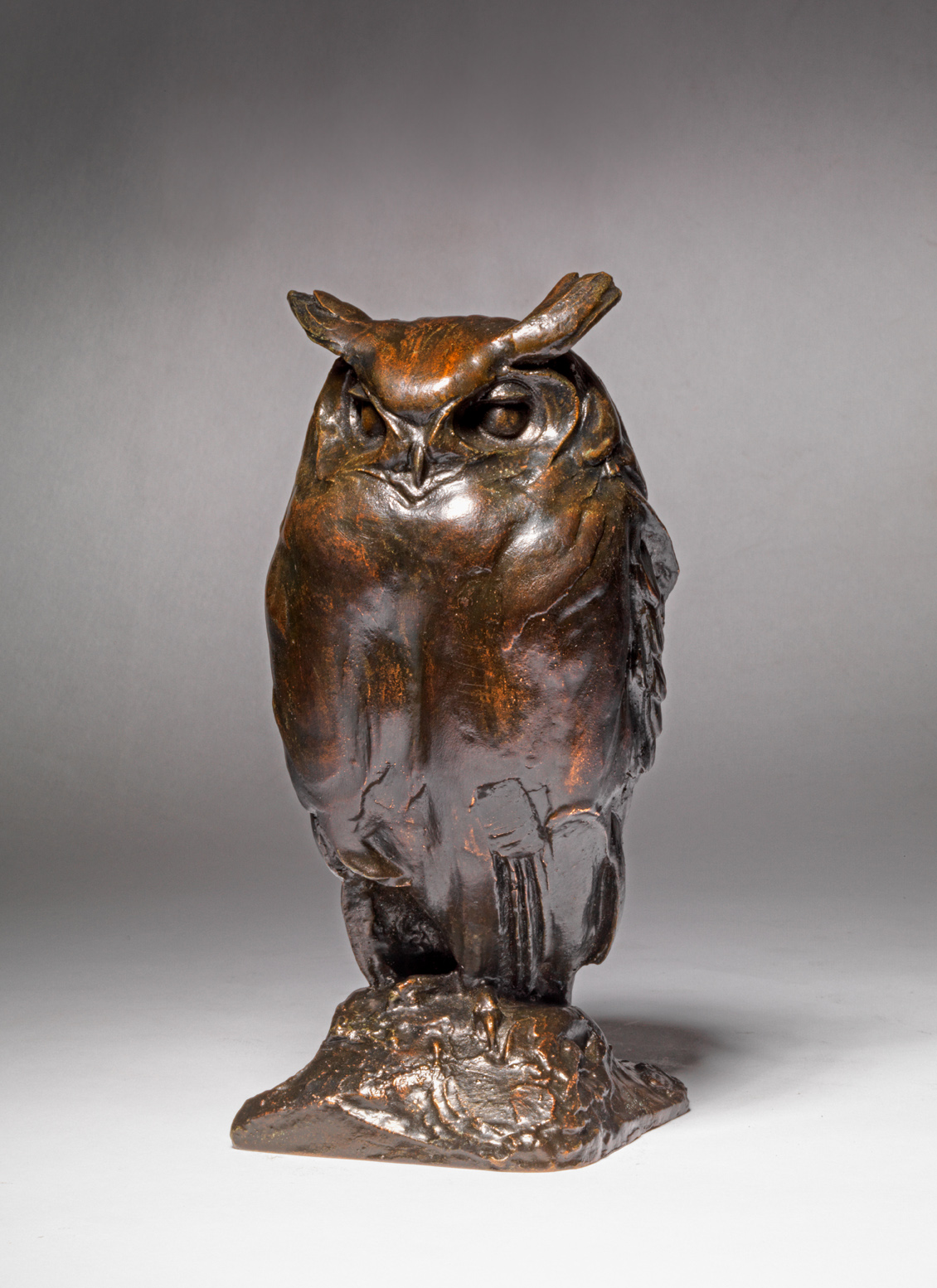
Whilst Georges Collard’s work is rare to appear on the market it is always of exceptional merit. After careful observation at the Antwerp zoo he would then settle on a typical pose adapting his modelling style to suit each animal’s surface texture.
With his brother and the sculptor Frans Jochems he was in 1907 one of the founding members of the “Antwerp artists’ and sculptors’ circle”. He specialised in depictions of animals – preferably in movement – and developed into one of the most original talents in this area. The way in which he modelled and gave form to his sharply observed subjects has something idiosyncratic about it that makes his sculptures easily recognised.
Georges Collard was born on 11 May 1881 in Antwerp. His twin brother was the animal sculptor Jean-Charles Collard, and his brother-in-law Josuë Dupon, who belonged to the artistic circle of the twins’ father Armand Collard (1838–1910), a physician as well as a reputable etcher and painter.
He studied under Professor Thomas Vinçotte at the Antwerp Academy, where he himself taught from 1920 onwards. With his brother and the sculptor Frans Jochems, Collard was in 1907 one of the founding members of the ‘Antwerp artists’ and sculptors’ circle’. He specialised in depictions of animals – preferably in movement – and developed into one of the most original talents in this area. The idiosyncratic way in which he modelled and gave form to his sharply observed subjects makes his sculptures easily recognisable. He sometimes chose unusual poses which can look anatomically improbable, but which are always animated, revealing in their stylised realism an affinity with the somewhat more expressive art of Albéric Collin.
For the World Exhibition of 1930 in Antwerp, Georges Collard created a huge bronze equestrian statue of the Belgian King Leopold I (approximate height 5.5 metres), which was subsequently shipped to South America. He regularly presented smaller works, mainly bronzes cast by the Compagnie des Bronzes in Brussels (although Batardy castings are also found), at exhibitions in Antwerp, Brussels and Ghent.
The artist’s work is represented in a number of public collections, but surprisingly is absent from that of the Antwerp Zoo, where he was a regular visitor modelling the animals.
In 1924 he created the war memorial in his hometown of Brasschaat, near Antwerp. He died in Brasschaat on 7 June 1961.
Artworks
View all Artworks >
Walking Bear, 1926
Georges Collard
A fine quality, early twentieth century bronze model of a ‘Walking Bear’ by Georges Collard (Belgian, 1881-1961). This sculpture was produced by the lost wax […]




